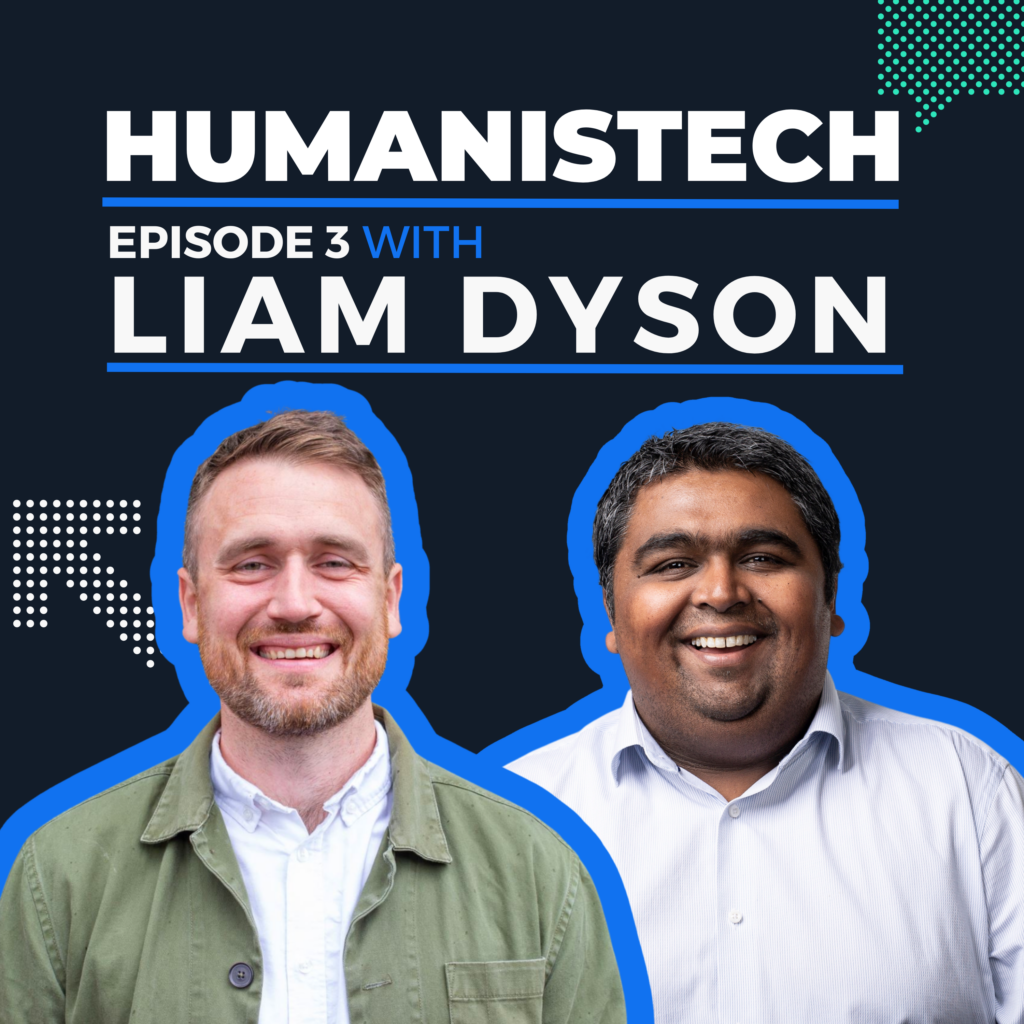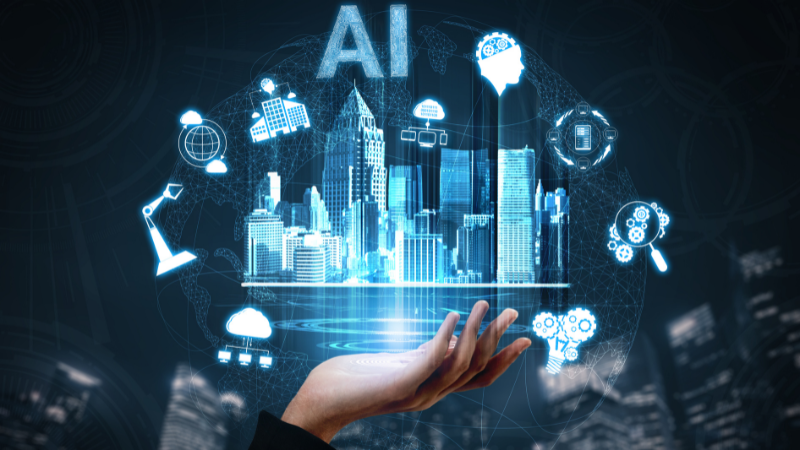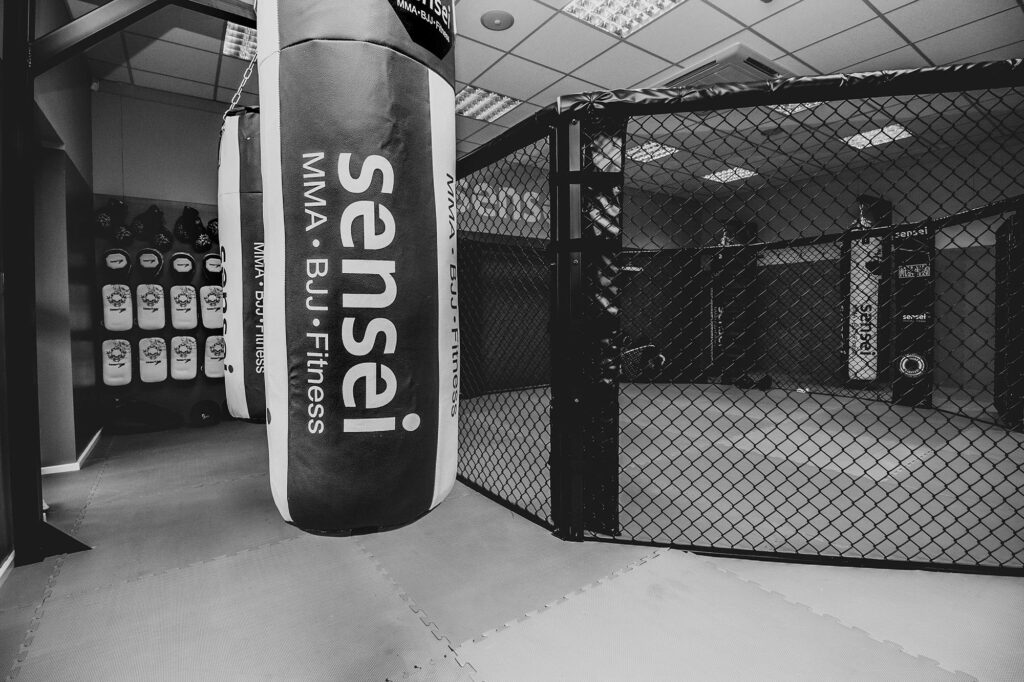Far from the robot-ruling dystopia presented to us in sci-fi movies‚ the power of AI can be harnessed by businesses for good. A great deal of good at that. The CEO of Google‚ Sundar Pichai said:
“Artificial intelligence is not a threat‚ but an incredible tool that will enhance our capabilities and solve some of the biggest challenges of our time.”
Utilising AI in your mobile apps‚ web apps and connected platforms opens up huge potential for increased efficiencies‚ streamlined processes and reduced operational costs.
We’re on the precipice of a digital revolution and with that comes huge change. Business leaders who want that competitive edge over their peers embrace that change and the opportunities that come with it.
We’ve seen what AI can do for innovation‚ creativity‚ collaboration and interactivity for our clients. And we’re not alone.
With the top AI apps bringing in tens of millions of pounds in a matter of months‚ our clients are keen to see what it can do for them. And we’re here to guide you through all the options and the ever-changing tech landscape.
The stats speak for themselves:
– 97% of business owners believe ChatGPT will help their business
– 64% of businesses expect AI to increase productivity
– AI is expected to see an annual growth rate of 37.3% between 2023 and 2030
– One-quarter of companies are adopting AI because of staff shortages
So‚ what is AI and what can it do?
Simply put‚ the term AI refers to computer systems developed to perform functions that usually need human intelligence.
So‚ we’re talking about things from decision-making‚ problem-solving‚ language processing and speech to image recognition.
With AI‚ machines can learn from data and adapt their own behaviour. Think risk assessments and fraud detection‚ more accurate cancer diagnoses and targeted treatment‚ customer service chatbots and purchasing behaviour analysis.
What are the different types of AI and how can businesses take advantage?
The world of AI moves so fast‚ the possibilities of how it can help businesses are seemingly never-ending. To narrow it down‚ popular types of AI used most in high-performing apps‚ generally fit into these categories:
-
Machine learning
Algorithms working from huge datasets make it possible for computers to learn‚ make predictions or take actions. And they can do this without being specifically programmed to take these actions.
You’ll find machine learning AI used for things like speech recognition‚ facial and image recognition‚ recommendation systems and predictive analytics.
-
Large Language Models‚ LLMs
LLMs work within the larger field of natural language processing (NLP). They use algorithms and models to process‚ analyse and generate natural language speech or text.
LLMs are used by voice assistants like Alexa and Siri‚ and translation apps like Microsoft Translate and Google Translator.
-
Generative AI
Unless you’ve been living under a rock‚ you’ll have heard a lot about ChatGPT. Powered by LLMs‚ it’s a tool developed by OpenAI which can understand and generate text‚ based on the prompts it receives. It uses language modelling and sequence prediction techniques to produce highly sophisticated written content and answer questions.
Google’s Bard is another example of generative AI. Although it’s powered by a different language model and draws its information from the internet in real time. Whereas‚ as of May 2023‚ ChatGPT draws on a dataset limited to late 2021‚ but that’s a different conversation.
You’ll find generative AI used in chatbots‚ and content generation. And lately‚ services such as our new AI Accelerator service.
How can we use AI in an app?
AI has taken the world by storm and it’s apparent that it can elevate any product that implements it. At the same time‚ the relatively low cost of implementation stacks up well against the benefits that AI can bring to your business. And it’s a technology that can be rolled out across a vast majority of platforms.
There are countless proven use cases for AI across all sorts of sectors‚ including healthcare‚ banking‚ fintech‚ ecommerce‚ HR‚ hospitality‚ supply chain and marketing.
If you’re bringing AI into a pre-existing app‚ integration can be through APIs or SDKs‚ which can leverage pre-trained models for the required tasks. These could include things like recommendation engines and voice recognition.
And if you’re building a new app‚ AI frameworks and libraries can be used in the development process. They can be tailored to your specific business needs for more control and customisation.
![[object Object] [object Object]](http://images.ctfassets.net/o6514hijae09/2ISYKTHJH7aAPT5xW8uN7T/4192af421e32360b118b0e9d9516ff62/AI-warehouse_management.png)
Here are some examples of AI use by businesses
– Coca-Cola uses tools like ChatGPT and DALL-E for personalised advertising and increased operational efficiency. Coke also uses AI in purchasing and pre-ordering across Australia and New Zealand.
Their use of AI brings the soft drinks giant huge volumes of data‚ which they then use to generate further marketing decisions and unique and personalised experiences for their customers.
– Amazon was a super-early adopter of AI tech. It has reorganised its entire structure to integrate AI into every part of the company‚ setting it up to become the largest e-commerce website in countless countries across the globe.
Amazon’s algorithms have led the way in harnessing AI to boost the customer experience with personalised shopping recommendations.
– Nike‚ the largest sports apparel company in the world has used AI to continue its growth trajectory. Using AI‚ Nike engages customers by launching customisable experiences.
Customers can design their own shoes both in-store and online. These experiences enable Nike to collect data‚ analyse it through their algorithms and use it to design future products.
There are so many different ways AI can improve your apps and platforms. Here are a few examples of its potential in various industries:
-
Finance
From chatbots in personal finance apps to fraud detection‚ improvements in loan underwriting and risk reduction‚ the benefits of AI in the financial sector are fully appreciated by industry leaders. Potential cost savings for banks from AI apps are estimated to be around $447 billion this year.
-
Healthcare
Clinicians use AI algorithms in medical diagnoses‚ predicting outcomes and prognoses‚ and analysing data. This can speed up decision-making time and reduce the incidence of errors.
-
Supply Chain and Logistics
AI can be used for improved warehouse management. That could include more accurate inventory management that would increase efficiency and speed delivery times.
-
E-commerce
E-commerce platforms can use AI-powered recommendation engines to suggest content to users based on their preferences and behaviour.
But are there any challenges to AI?
Like all things‚ we must be aware of any challenges before entering your AI journey.
1. Data Confidentiality
Using AI has the potential to open you up to risks surrounding data collection and privacy.
2. Inaccuracy
Preventing the potentially harmful consequences of inaccurate AI generated content and data should be top priority. Especially in highly regulated industries such as finance and healthcare. While there’s huge potential to harness the power of AI in these sectors too‚ it needs to be done properly.
3. Security
Effectively navigating the challenging terrain of responsible and secure business applications of AI is a daunting task‚ as it holds the potential for significant harm.
However‚ we can provide assistance in navigating this landscape adeptly and safely.
![[object Object] [object Object]](http://images.ctfassets.net/o6514hijae09/1x6xY7Tq4Y1g6sMlgCEaQo/746bbaf68d7adf3838efbdcedfacaa08/AI-confident.png)
How can hedgehog lab help
As a tech consultancy‚ we understand that you must be champing at the bit to incorporate AI tech into your platforms and start making those huge cost savings. But it can be hard to know where to start.
Which is why we offer a package of services to guide you through the process. Our AI Accelerator service is a tailored generative AI solution made up of three packages‚ so you can tailor the support to meet your individual business needs.
1. Ignition
This 1-week starter service helps you upskill your teams and firm up the role of AI in your product roadmaps.
-
Knowledge-sharing sessions & workshops
Collaborate with our UX experts to unpack and identify challenges.
-
User research & business challenge insights
Stop working on assumptions. Let’s dig into the data and prioritise your goals.
-
AI investment report & product roadmap
Our product managers will help you define a bespoke AI product roadmap and investment plan.
2. Catalyst
Inclusive of Ignition‚ this 3-week service brings you a prototype and user testing of your AI concept.
-
Everything in Ignition plus…
-
Design prototyping & testing
We’ll take one of your concepts and design and test your prototypes.
-
A fully interactive prototype
Our UX design team will create a fully interactive prototype of your concept.
-
Validated user testing
Behavioural experts will complete fully validated user testing of your interactive prototype.
3. Blueprint
This 7-week service is inclusive of both Ignite and Catalyst and is designed to bring your product to market in a short space of time.
-
Everything in Catalyst plus…
-
Build & launch of a live proof of concept
We’ll take your defined concept and build a live product to integrate with your existing mobile and web channels.
-
Expert coding
Our in-house team of technical experts will work on all the coding for you.
-
One multi-platform code base
We’ll develop a single multi-platform code base for web and mobile apps.
-
Live publish
We’ll publish your product live to the platform of your choice.
Ready to harness the power of AI with us?
In just 7 weeks you could have a live‚ fully tested and validated‚ interactive product ready to launch.
Get in touch with us here to sky-rocket your customer experience‚ reduce operational costs and keep you ahead of your competitors.






